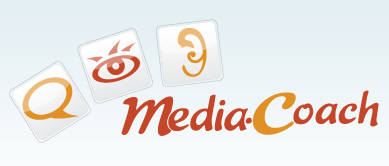
The Media Coach partnership has two operational objectives: to improve the quality of media education and to increase the volume of co-operation between institutions or organisations providing (…)
The Leonardo da Vinci Media Coach partnership is a community of media resource centres that is working on key competences concerning media coaching both at a national and European level. This (…)
The Media Coach project improves the media literacy competences and skills of the professional and educational staff of libraries, adult education organizations, teachers primary and secondary (…)
The Media Coach project improves the media literacy competences and skills of the professional and educational staff of libraries, adult education organizations, teachers primary and secondary education, youth workers and staff of parent organizations in order to coach and support students, parents and adult learners. Media coaches support colleagues within their institutions concerning media literacy issues and have the responsibility to transform the educational media literacy approaches of their institutes. Doing so we created a provision for learners with special needs, and in particular by helping to promote their integration into mainstream education and training. It does so by putting media education through professional media coaches on the agenda.
Media coaches can operate at at least four different levels:
Media coaches at all levels are the intelligent guides in the process of improving media literacy and reducing.
According to the EU Media literacy is defined as the ability to access the media, to understand and to critically evaluate different aspects of the media and media contents and to create communications in a variety of contexts.
Media literacy relates to all media, including television and film, radio and recorded music, print media, the Internet and all other new digital communication technologies. It is a fundamental competence not only for the young generation but also for adults and elderly people, for parents, teachers and media professionals. As the EU Commission, the partnership considers media literacy as an important factor for active citizenship in today’s knowledge and information society.
General media literacy levels & description:
*BASIC
INDIVIDUAL: The individual has a set of abilities that allows basic use of the media. There is a limited use of media. The user knows its basic function, deciphers its basic codes and uses it for specific ends and to determine the tool. The user’s capacity to critically analyse the information received is limited. Its communicative capability through media is also limited.
ENVIRONMENT: It does not provide stimuli to the development of media literacy.
*MEDIUM
INDIVIDUAL: The individual is fluent in media use, knowing their functions and able to carry out certain, more complex operations. The use of media is extended. The user knows how to obtain and assess the information he/she requires, as well as evaluating (and improving) the information search strategies.
ENVIRONMENT: It provides some stimuli to the development of media literacy, but they are irregular and inconsistent.
*ADVANCED
INDIVIDUAL: The individual is very active in media use, being aware of and interested in the legal conditions that affect its use. The user has an in-depth knowledge of the techniques and languages and can analyse (and, eventually) transform the conditions affecting his/her communicative relations and the creation of messages. In the social sphere, the user is capable of activating cooperation groups that allow him/her to solve problems.
ENVIRONMENT: It provides systemic stimuli to the development of media literacy with coordinated actions. There are good environmental factors to foster and improve media literacy.